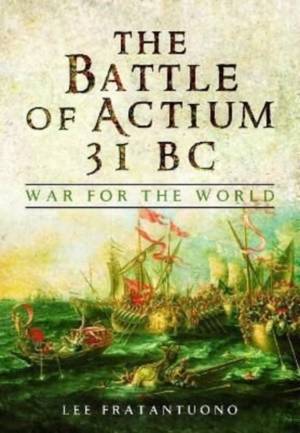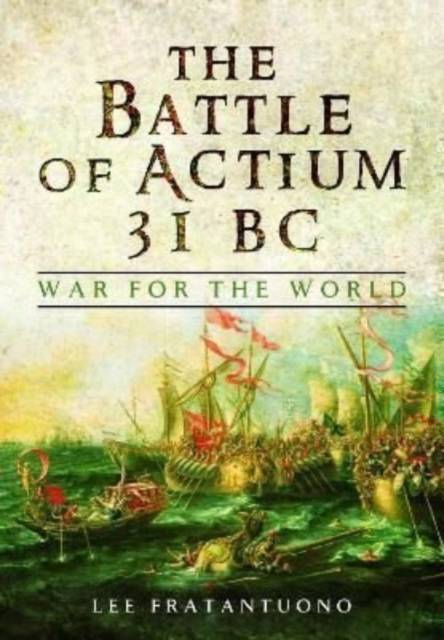
Door een staking bij bpost kan je online bestelling op dit moment iets langer onderweg zijn dan voorzien. Dringend iets nodig? Onze winkels ontvangen jou met open armen!
- Afhalen na 1 uur in een winkel met voorraad
- Gratis thuislevering in België vanaf € 30
- Ruim aanbod met 7 miljoen producten
Door een staking bij bpost kan je online bestelling op dit moment iets langer onderweg zijn dan voorzien. Dringend iets nodig? Onze winkels ontvangen jou met open armen!
- Afhalen na 1 uur in een winkel met voorraad
- Gratis thuislevering in België vanaf € 30
- Ruim aanbod met 7 miljoen producten
Zoeken
€ 20,95
+ 41 punten
Uitvoering
Omschrijving
A good argument could be made that the Battle of Actium was the most significant military engagement in Roman history. On a bright September day, the naval forces of Octavian clashed with those of Antony and Cleopatra off the coast of western Greece. The victory Octavian enjoyed that day set the state for forty-four years of what would come to be known as the Augustan Peace, and was in no small way the dawn of the Roman Empire.
Yet, despite its significance, what exactly happened at Actium has been a mystery, despite significant labors and effort on the part of many classicists and military historians both amateur and professional. Professor Lee Fratantuono reexamines the ancient evidence and presents a compelling and solidly documented account of what took place in the waters off the promontory of Leucas in late August and early September of 31 B.C.
Yet, despite its significance, what exactly happened at Actium has been a mystery, despite significant labors and effort on the part of many classicists and military historians both amateur and professional. Professor Lee Fratantuono reexamines the ancient evidence and presents a compelling and solidly documented account of what took place in the waters off the promontory of Leucas in late August and early September of 31 B.C.
Specificaties
Betrokkenen
- Auteur(s):
- Uitgeverij:
Inhoud
- Aantal bladzijden:
- 228
- Taal:
- Engels
Eigenschappen
- Productcode (EAN):
- 9781399020893
- Verschijningsdatum:
- 15/09/2022
- Uitvoering:
- Paperback
- Formaat:
- Trade paperback (VS)
- Afmetingen:
- 155 mm x 231 mm
- Gewicht:
- 372 g

Alleen bij Standaard Boekhandel
+ 41 punten op je klantenkaart van Standaard Boekhandel
Beoordelingen
We publiceren alleen reviews die voldoen aan de voorwaarden voor reviews. Bekijk onze voorwaarden voor reviews.











